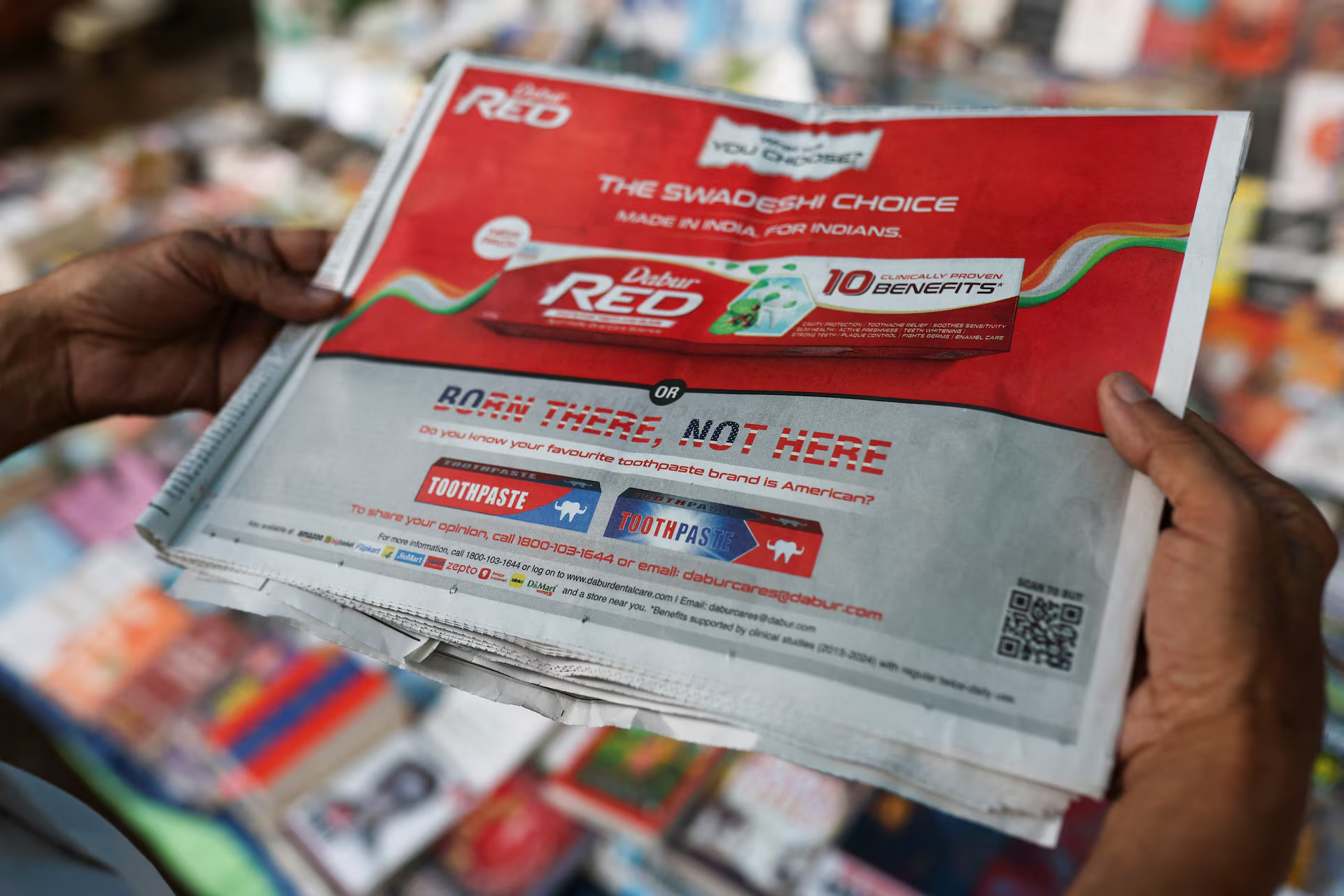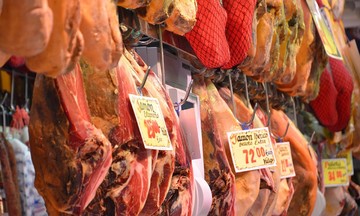Dabur, the Indian competitor of Colgate-Palmolive, has turned toothpaste advertising into a test of nationalism by encouraging Indian consumers to shun American brands.
Recently, they placed a full-page ad in The Times of India featuring unlabeled toothpaste tubes resembling Colgate packaging, though without naming the competitor. The ad carried the message "Made in India, not there," with the font in red, white, and blue, similar to the American flag.
 |
The Times of India, issue dated 1/9, carries Dabur's "Made in India" advertisement, at a newsstand in New Delhi, India, on 5/9. Photo: Reuters |
The Times of India, issue dated 1/9, carries Dabur's "Made in India" advertisement, at a newsstand in New Delhi, India, on 5/9. Photo: Reuters
The message to consumers is that Dabur is the "made in India" choice, while their current favorite brand might be from the US.
Dabur declined to comment on the advertisement, and Colgate did not respond to inquiries.
According to 2024 data from Euromonitor, Colgate holds 43% of the Indian toothpaste market, followed by Unilever, which owns the Pepsodent brand in the country. Dabur ranks third with 17%.
Dabur is among several Indian businesses promoting local products amid US-India trade tensions. Last week, US President Donald Trump’s 50% tariffs on Indian imports took effect, prompting supporters of Indian Prime Minister Narendra Modi to launch a boycott campaign against American brands on WhatsApp, including McDonald's, Pepsi, and Apple.
On 4/9, Prime Minister Modi reiterated his call to use Indian-made goods. The leader of the world’s most populous country urged children to "make lists" of foreign-branded items, and teachers to encourage students not to use them. India’s 1.4 billion people represent a major market for American consumer goods, often transacted through Amazon's online retail platform.
Karthik Srinivasan, a communications consultant, called the advertising strategies of Dabur and other brands "moment marketing."
"All brands are trying to capitalize on nationalism this week and next," he said. Other companies using similar tactics include Amul, India’s largest dairy company, with an advertisement featuring their mascot holding the Indian flag and a slab of butter.
Indian email provider Rediff, popular years before Yahoo and Google Mail became dominant, also ran newspaper ads calling its service the "mail of India," emphasizing its role in keeping local business information within the country.
Bao Bao (Reuters)












